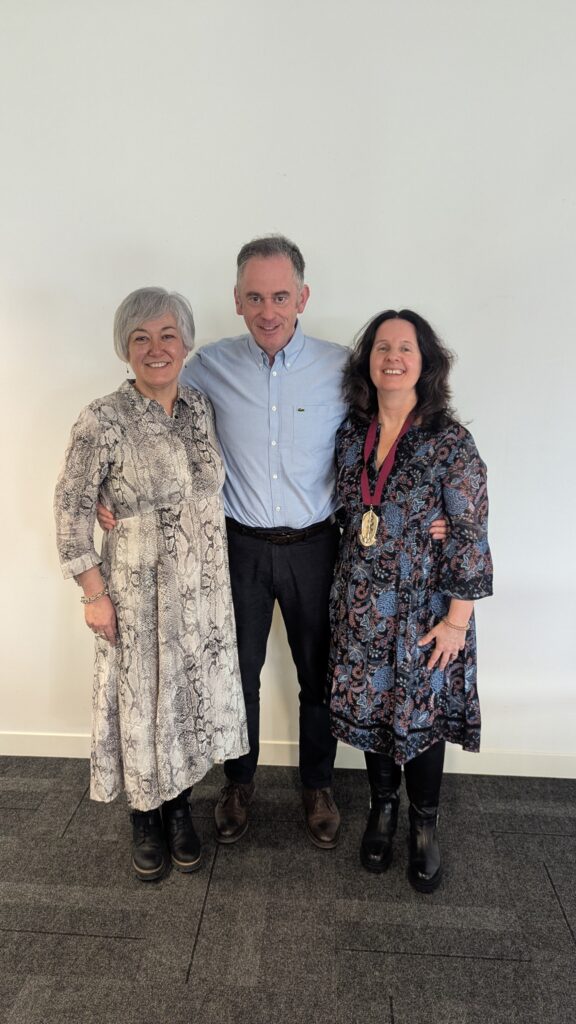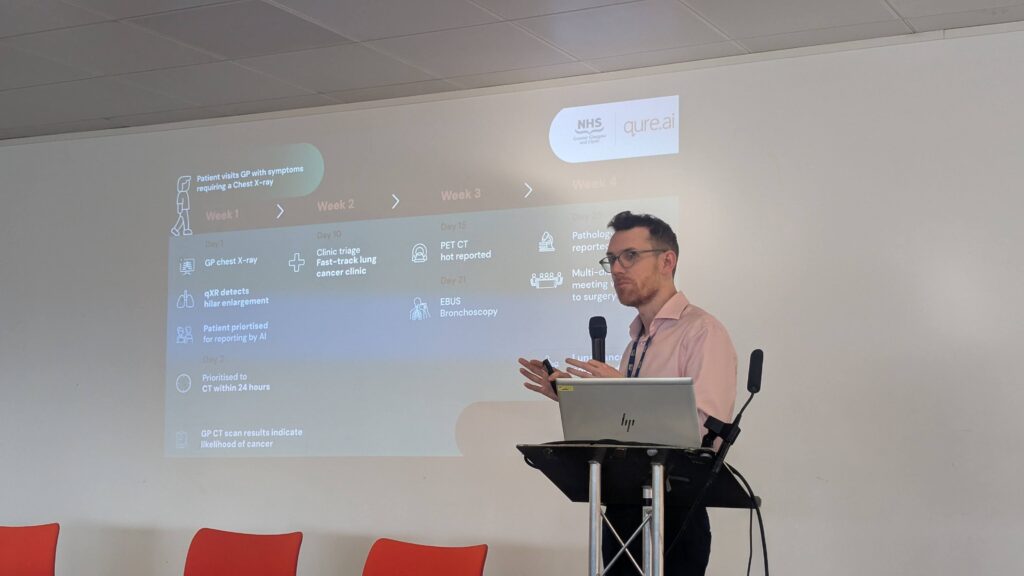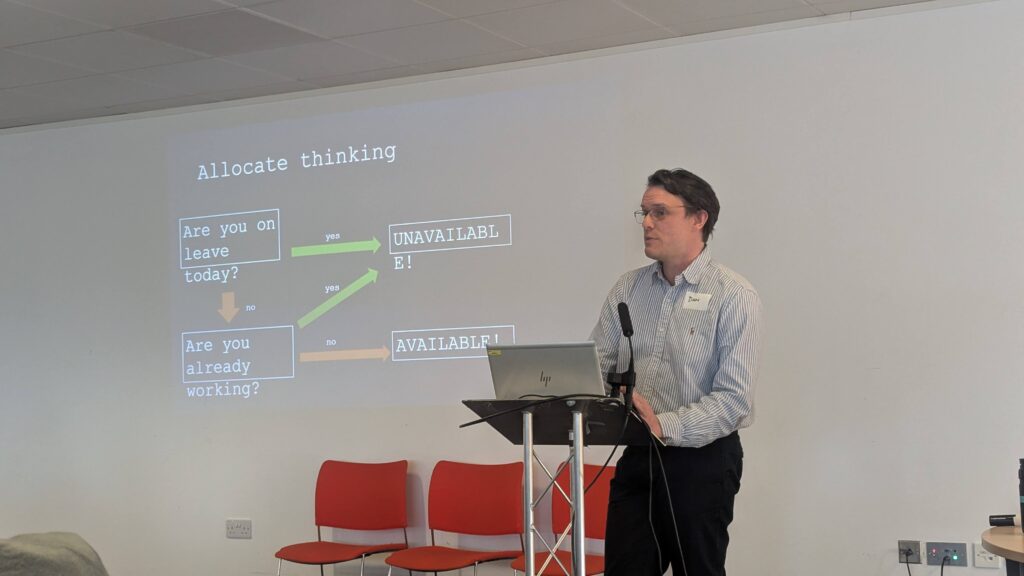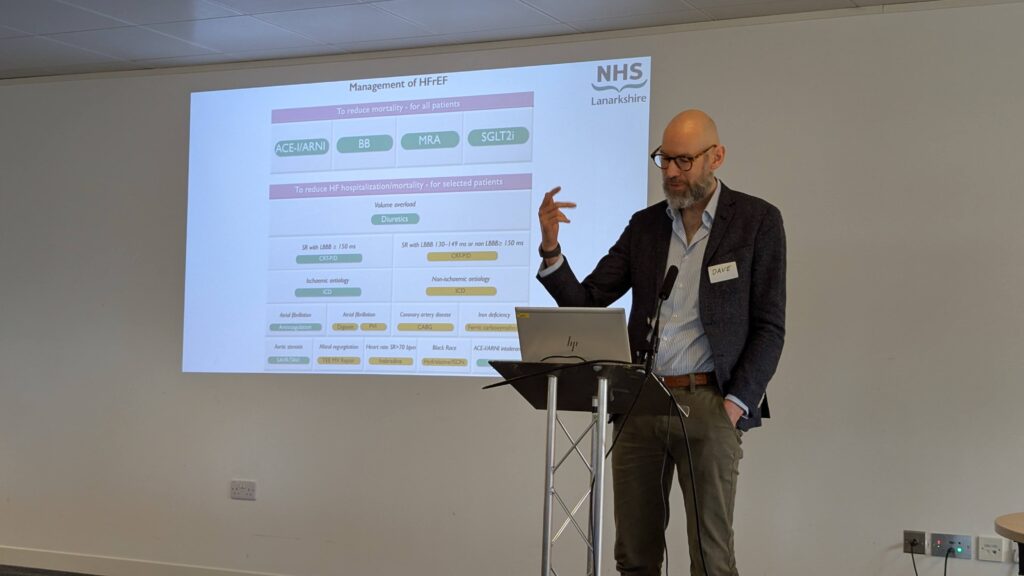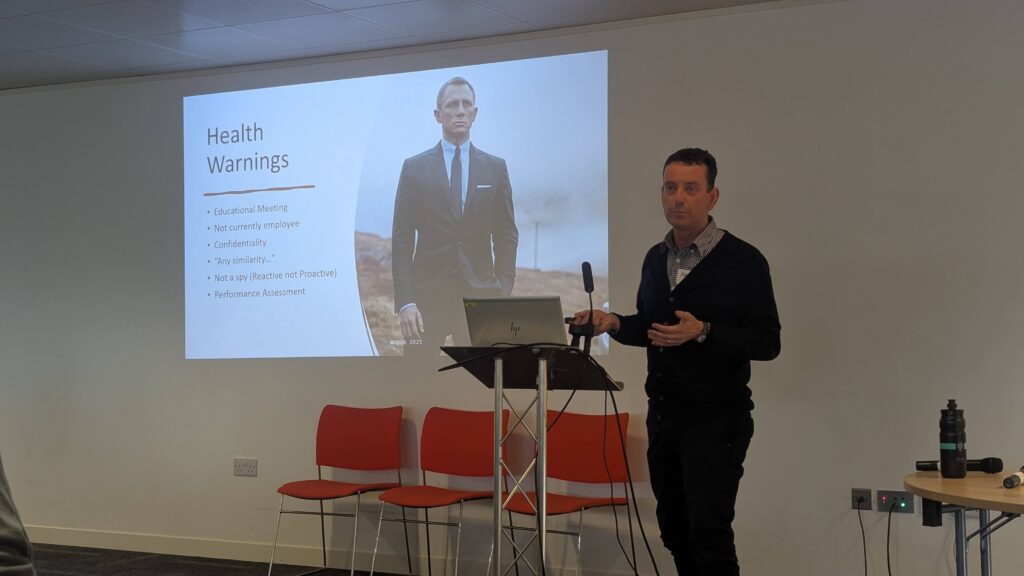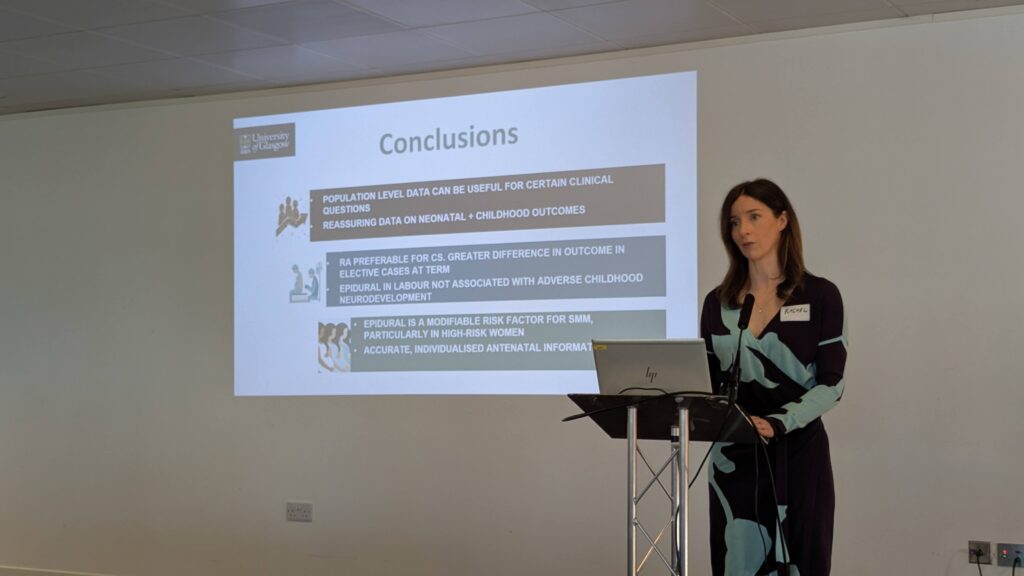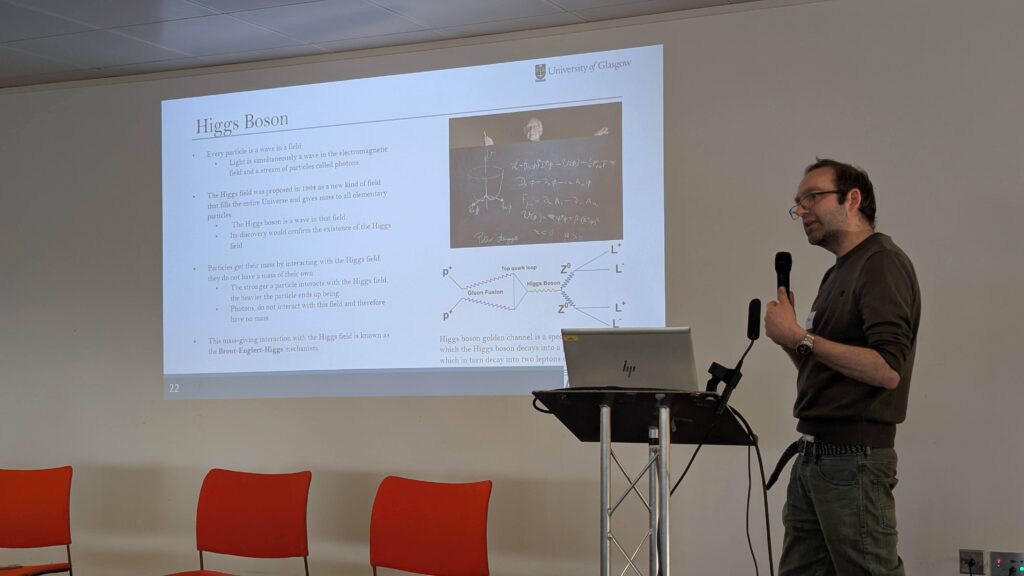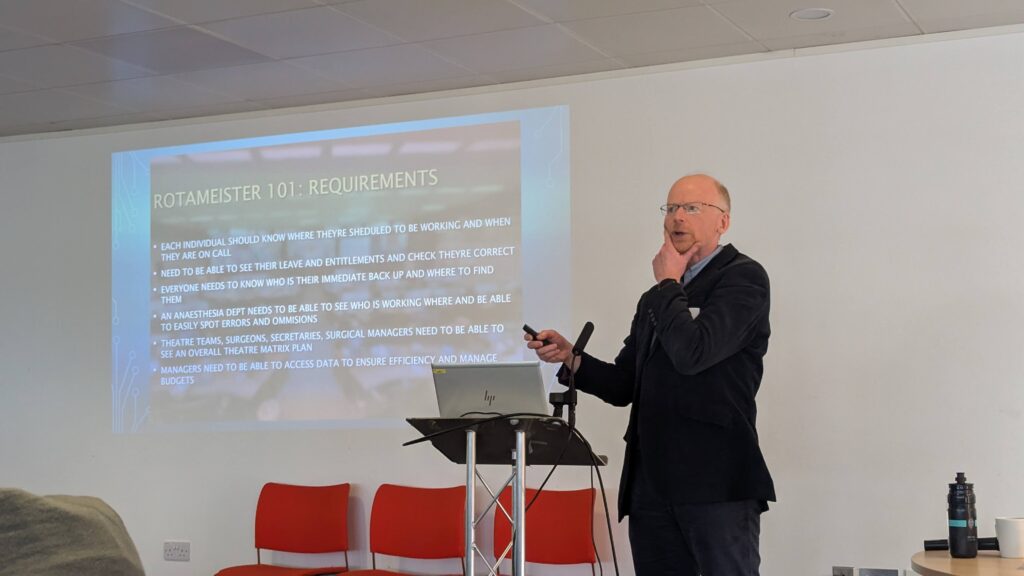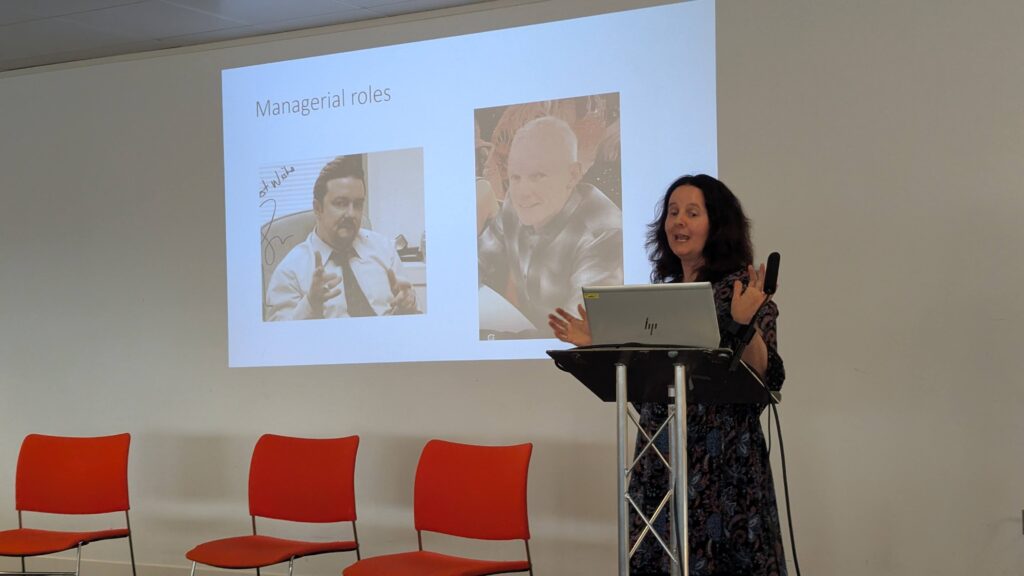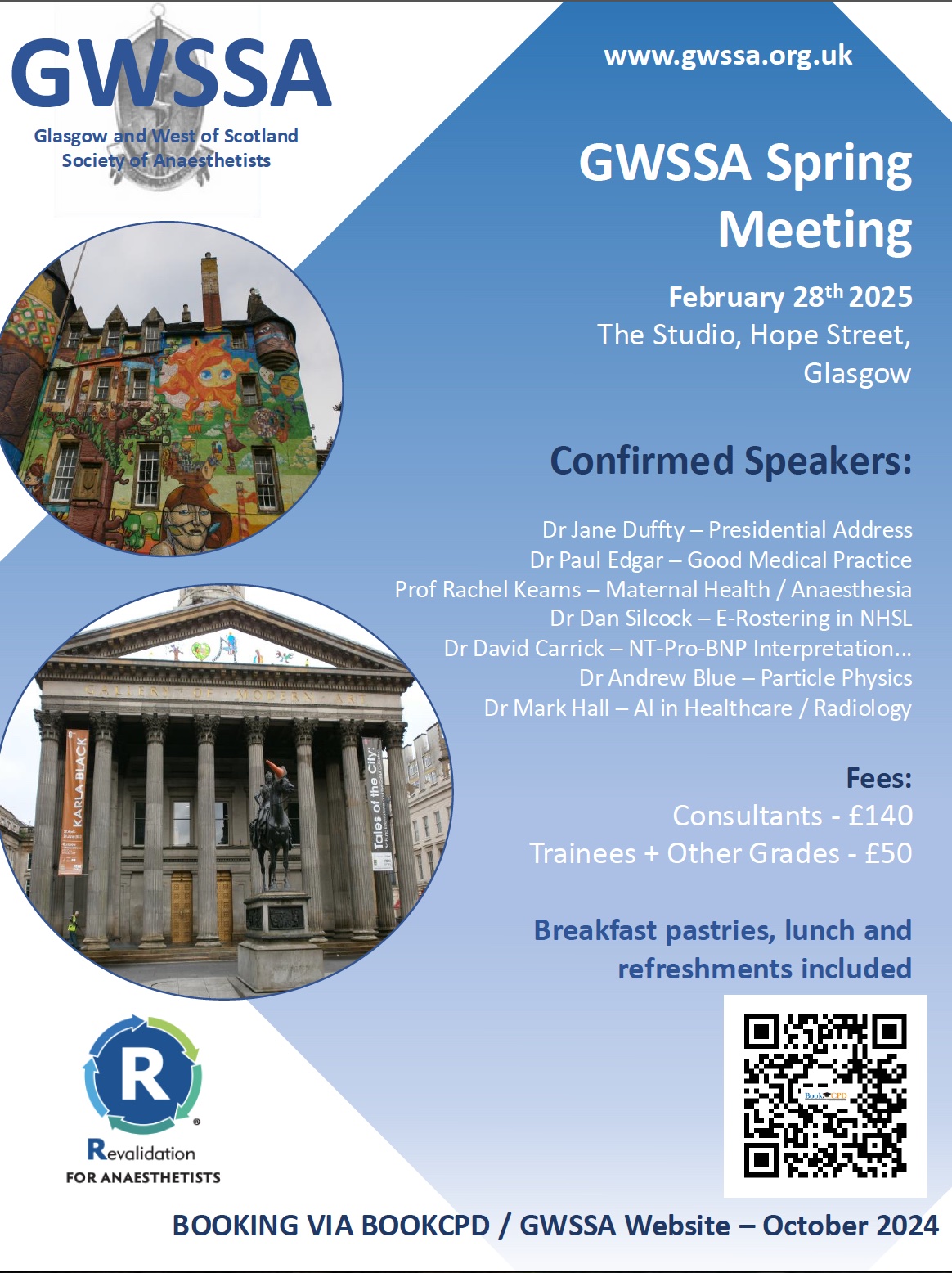
Spring Meeting 2025
GWSSA Spring Meeting, 28th February 2025
Location: the Studio, Glasgow.
We met in February 2025 for a near sell-out spring meeting with a fantastic and varied day of learning, inspirational speakers and networking. Topics included:
- Prof. Rachel Kearns – Maternal and child hood outcomes in Scottish Population.
- Dr David Carrick – A guide to NT-proBNP and SGLT2 inhibitors in the perioperative period.
- Dr Paul Edgar – Why you should read Good Medical Practice.
- Dr Ian Anderson – Making E-rostering work in NHS A&A.
- Dr Dan Silcock – Making E-rostering work in NHSL.
- Dr Andrew Blue – What you have always wanted to know about particle physics.
- Dr Mark Hall – Artificial Intelligence in Healthcare.
- Dr Jane Duffty – Presidential Address.
We had over 60 consultants as well as registrars and medical students join us for the 2025 GWSSA spring meeting. The morning session began with Dr David Carrick outlining the history of cardiac and diabetic outcome trials which showed improvement following the use of the SGLT-2 inhibitors reducing all cause mortality and major adverse cardiovascular events. The NT-proBNP metric is useful to check in high-risk patients undergoing high-risk procedures (prognostic value for perioperative CV complication), and echocardiogram may be needed but there is a lack of evidence it improves outcomes for high-risk surgery.
We then heard from Professor Rachel Kearns on maternal and childhood outcomes who explored such topics as: mode of anaesthesia and adverse neonatal / childhood outcomes, epidural association with autism, and epidurals and morbidity / mortality. The advice is to avoid GA when not clinically indicated, there is no association with acute adverse outcomes or neurodevelopment, and of a pool of 560,000 patients epidurals conferred a 35% reduction in significant maternal morbidity (highest benefit in high-risk parturients and premature delivery).
In the second session we heard from Drs Daniel Silcock and Ian Anderson about using a new e-rostering system for two different health boards. There were mixed experiences of using this with a lot of challenges including the time it takes to learn a new system, and several logistical challenges. Before lunch we heard from Dr Paul Edgar about the evolution of the GMCs involves in training (1990s vs. now), the pillars of public protection, and the reasons why you might find yourself in front of the GMC.
After lunch we had two unique talks. The first from Dr Andrew Blue with an overview of particle physics, from the construction of the CERN large hadron collider until now, and the discovery of more recent particles including the Higgs Boson, dark matter, and dark energy – hopefully not appearing in the Final FRCA anytime soon. We then explored artificial intelligence and its uses in healthcare from Dr Mark Hall including its use to analyse imaging from cancer and fractures, and to read reports. The future could include automation, changes to IRMER guidelines, and use of generative AI.
The final talk of the day was the presidential address by GWSSA President Dr. Jane Duffty. Jane took us through her career from getting into medicine after interest in physics/maths/chemistry, and her various roles such as ICM faculty tutor, college tutor and medical education. There was also reflection on the difficulty of dealing with a fire in Covid ICU.
Copies of all presentations have been shared to delegates, please contact gwssaupdates@gmail.com if you wish to access these.
Click an image to view in full screen.
